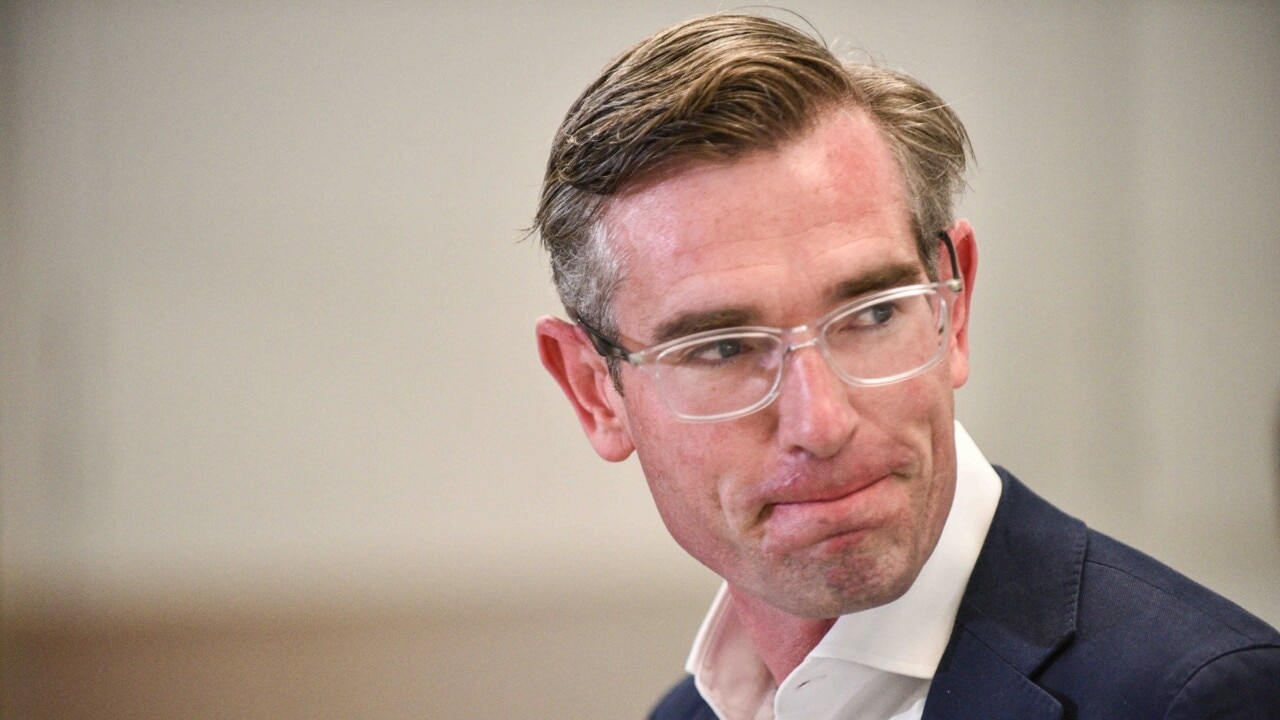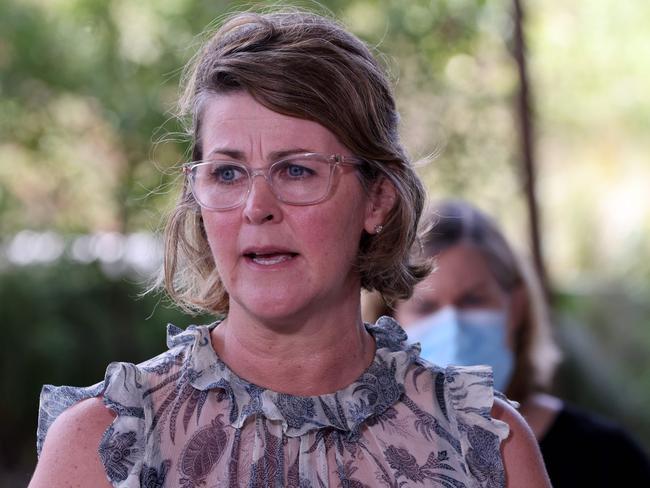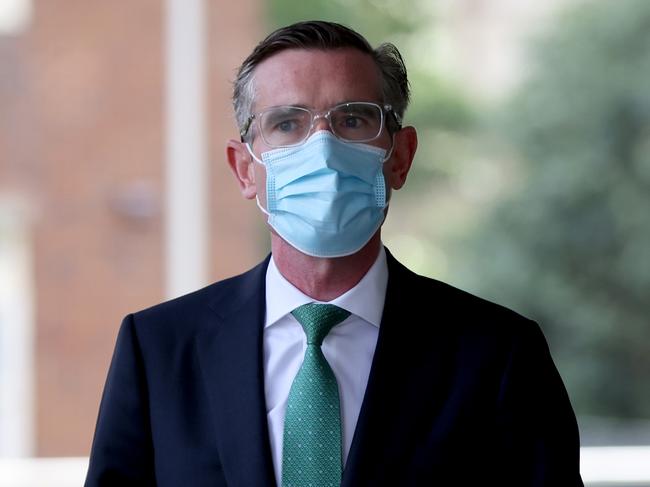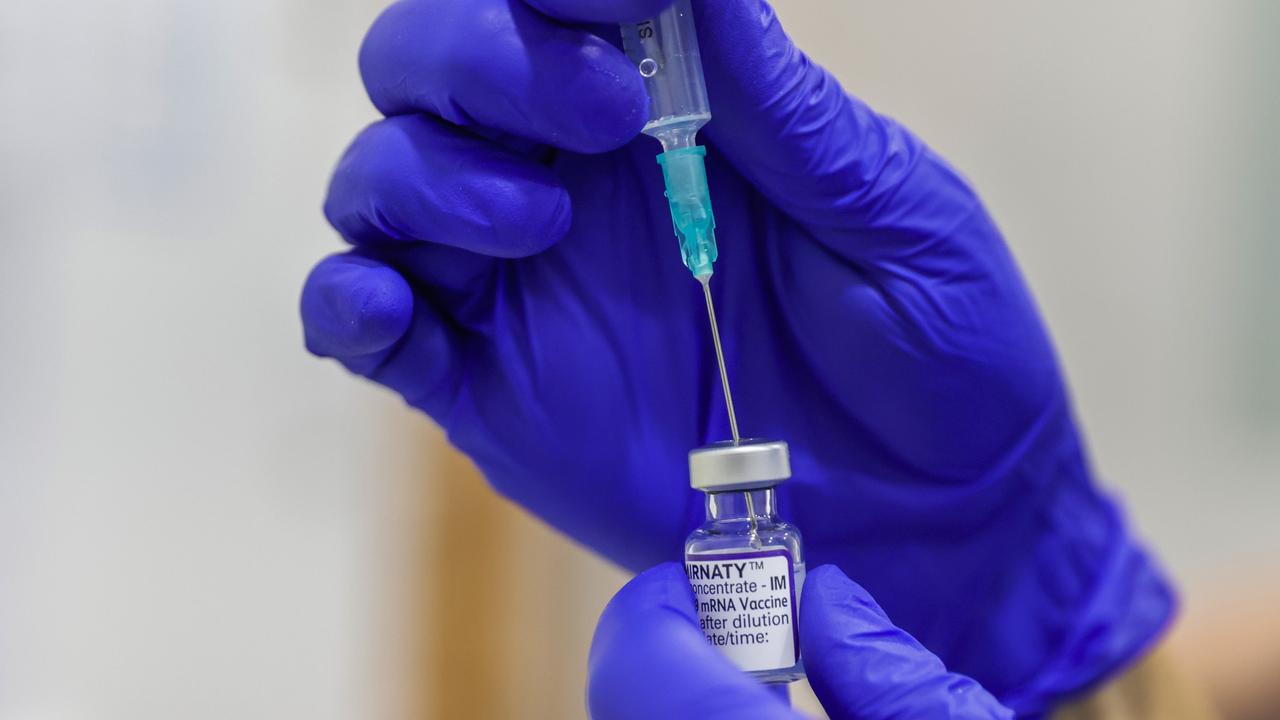NSW Covid update: 29 deaths and 63,018 new cases
More than 63,000 new Covid cases including 38,000 RATs have been recorded in NSW but health officials believe the state may has passed its peak.

NSW Coronavirus News
Don't miss out on the headlines from NSW Coronavirus News. Followed categories will be added to My News.
NSW can expect cases to “plateau” next week, according to a top official.
NSW Health Deputy Secretary Susan Pearce claimed authorities were “increasingly confident” the tens of thousands of cases would begin to slow from next week.
“We expect that pressure on our hospitals to continue for at least the next few weeks, although what we are starting to become increasingly confident of is that we will see a plateauing next week and that is pleasing,” Ms Pearce said.
“That plateauing is obviously still at a relatively high level of Covid patients in this our hospitals and in our ICUs … but it does give us a degree of confidence about where we
are headed as I said into the next couple of weeks.”

NSW reported 29 more deaths from the virus on Friday and 63,018 new cases including almost 38,000 detected on rapid antigen tests.
Authorities are still cautious about the future of the current outbreak, but data from early January showed a reduction in test positivity rates when measured by the days PCR swabs were taken.
National chief health officer Professor Paul Kelly on Thursday said that NSW is “close to peaking, if not already”.
NSW COVID-19 update – Friday 14 January 2022
— NSW Health (@NSWHealth) January 13, 2022
In the 24-hour reporting period to 8pm last night:
- 95.2% of people aged 16+ have had one dose of a COVID-19 vaccine
- 93.8% of people aged 16+ have had two doses of a COVID-19 vaccine pic.twitter.com/M3SeEnwm6N
He said other jurisdictions across the world have seen a “very rapid rise” before a decrease in cases.
Prof Kelly said NSW could expect to see a change at the end of January or early February.
“We have a lot of real data now. In the past couple of weeks, there has been a levelling off in terms of hospitalisations, particularly in New South Wales,” he said.
“What we know from previous forecasting, that we do every week, is that New South Wales is a bit ahead of the other states and that is not surprising, they started earlier. They are close to peaking, if not already.
“The other states are a bit further behind. End of January and early February is when we will probably be where we start to see a change. That is we have seen around the world, a very rapid rise in and a decrease.”
NSW chief health officer Dr Kerry Chant said of today’s deaths, 15 were men and 14 were women.
Three were in their 40s, five in their 60s. five in their 70s, 11 in their 80s and five in their 90s.
Dr Chant also said NSW is “moving away” from classifying people as close contacts and instead focusing on “those most at risk”.
“Everyone probably can understand that household contacts are the group that’s most at risk if
you have got an infectious case in that setting,” Dr Chant said.
She reminded positive cases they need to tell their household members to stay home for seven days, get a RAT test immediately and then another on day six.
But she also asked people to stay vigilant for the seven days after they leave isolation too.
“Whilst you’re most likely to acquire your infection in the first seven days after being exposed to a case we need people to be aware that the risk really extends for the full 14 days,” she said.
“A smaller number that can arise in that second seven days, so just be aware of that and take some precautions in terms of avoiding vulnerable settings where you can.”
Health system feeling the strain: Perrottet
An optimistic Premier Dominic Perrottet revealed hospitals are coping better than the expected “best case scenario”, despite a new grim record being set for deaths on Friday.
Mr Perrottet said it was going to be “a very difficult few weeks ahead” and, while the health system is “feeling the strain”, it has the capacity to deal with the Omicron surge.

“We are tracking against that modelling and, while the health system is under pressure, our health teams are doing an amazing job,” he said.
“We are currently tracking at both an ICU and hospitalisation rate here in NSW better than the best case scenario we released last week. So that is encouraging, reassuring and pleasing.”
With the surging number of cases impacting supply chain and essential work across the state, the health department expanded isolation exemptions for workers in critical industries. Workers in utilities, IT, welfare, funeral homes and cemeteries, air and sea freight and logistics, prisons, surf lifesaving and the media are now permitted to leave isolation if their employer determines their absence from the workplace “poses a high risk of disruption to the delivery of critical services or activities, and they are unable to work at home”.
However, the exemption rules will only apply if they do not have symptoms and they will be required to wear a mask and undertake daily rapid antigen tests.



